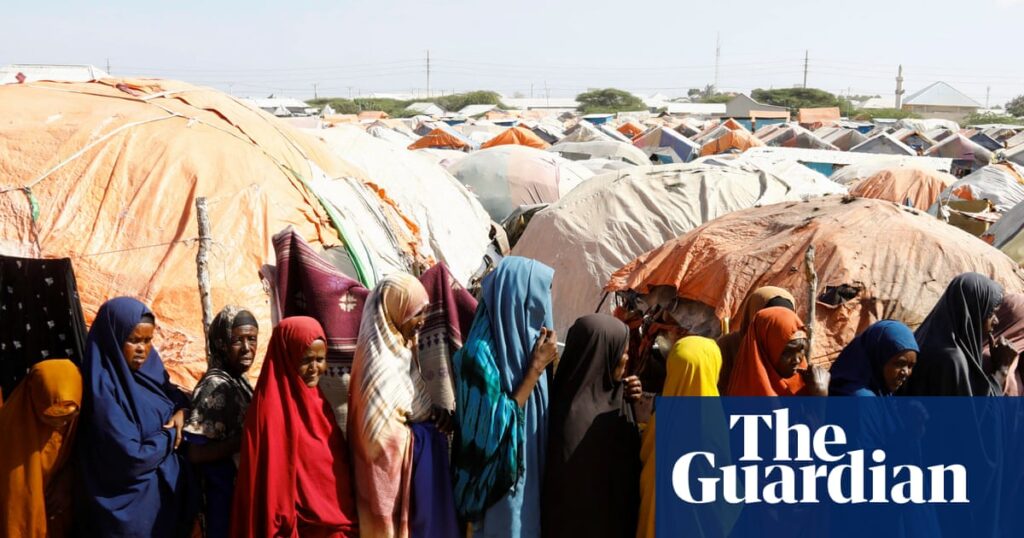One night in early July, Maryan Abdikadir Geedi decided it was finally time to abandon her small shop in the town of Moqokori in the Hiiraan region of Somalia.
Though she had heard of the rapid recent gains made by al-Shabaab, the Islamist militant movement, the 46-year-old had hoped to stay. Since getting married in 2013, Geedi had seen control over Moqokori change hands repeatedly.
“Just like how the rain comes and goes, so does control over Moqokori, but this time it was different,” Geedi said.
Since launching their offensive in February, al-Shabaab has swept through a swath of Somalia, taking back all the territory it lost to a coalition of government forces and allied tribal militias backed by US and Turkish air support in 2023, and adding more. In July, the fighting had reached within 40km (25 miles) of Mogadishu, the capital. Some observers predicted the capital might fall.
“The fear was immense. Word started spreading that [al-Shabaab] were advancing. When the fear got too much to bear, I decided to leave,” said Geedi, who headed for the town of Buloburde, 90km away, with her husband and nine children.
In recent weeks, frontlines have stabilised, though government security forces are still on the defensive. There is a construction boom in Mogadishu, and few now believe the capital will be seized by the militants.
Though the US has intensified airstrikes against al-Shabaab and other militant groups in Somalia, Washington has signalled it will not send back the hundreds of special forces withdrawn during Donald Trump’s first term.
Instead, countries such as Turkey, the United Arab Emirates and Uganda have committed troops, training or air support over recent years, while the African Union mission continues to field thousands of soldiers. Egypt is now sending a large contingent too.
Without this support, government forces would collapse, analysts say.
“It’s a strategic stalemate,” said Samira Gaid, regional security analyst with Balqiis, a Mogadishu-based thinktank. “Al-Shabaab are not interested in taking Mogadishu. They have a lot of smaller towns under their control and most of the rural areas. We have been stuck here for a while … and we will be stuck with it for as long as the government has the edge provided by foreign troops.”
The success of the recent al-Shabaab offensive has dealt a significant blow to the morale of fragmented security forces and the government of President Hassan Sheikh Mohamud, who pledged “total war” against the militants after taking power in 2022.
“I’ve lost 20 friends [fellow soldiers] and have been wounded twice in battle,” said one 42-year-old Somalia National Army veteran in the city of Beledweyne.
“I’ve fought in Beera Yabaal, Aboorey, Yasooman, Mabaax, Ceel Qooxle, Adan Yabaal, Masjid Cali Gaduud and Daaru Nicma. In the time since, all these areas have been recaptured by al-Shabaab,” he said. “[Al-Shabaab fighters] believe if they die, heaven awaits them, while most soldiers … want to collect their meagre salaries and return to their families.”
The veteran said he was concerned by the rapid gains made by al-Shabaab in recent months but fears worse is to come if nothing is done now to stop the militant advance.
“Now [al-Shabaab] are in a position where they can move fighters and supplies [around the country] as result of capturing strategic towns in Hiiraan. This puts many more areas in south and central Somalia at risk of falling. They are moving fast,” he said.
Observers point to the government’s weakness as the main cause of the militants’ recent success.
“The situation with al-Shabaab on the ground is always determined by the overall political and security environment and that is quite bad at the moment,” said Ahmed Soliman, an expert in east Africa at Chatham House in London.
“There are really big divisions in the country and these make it very difficult for federal government, its forces and international forces to coordinate counter terrorist efforts. Al-Shabaab are taking advantage of a very fragmented political landscape at this time.”
Further funding for the $160m a year African Union force in Somalia is also uncertain, which “has an impact on operations”, Soliman said.
Three weeks after the fall of Moqokori, al-Shabaab seized the strategic town of Maxaas, which sent shock waves across the country.
“With each day that passed more people started leaving. Homes had been abandoned, stores and markets left empty,” said Nimo Abdi Barre, 37.
With her husband and six children, Nimo trekked to the outskirts of town, where they where able to hitchhike on a lorry heading towards the city of Beledweyne – the capital of Hirshabelle province.
“My kids where vomiting and screaming. This was made worse by fears of IEDs and landmines on the road. My faith in God is what got me through,” she said.
Nimo has remained in Beledweyne, which the government has so far successfully defended.
“I’m here with family but at the same time nothing is worse then feeling like a refugee on your own soil,” she said. “I want to return home but only time will tell if I ever get the chance.”

